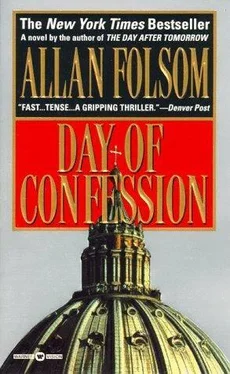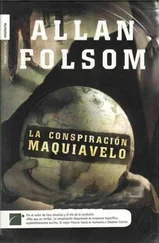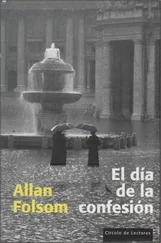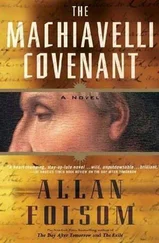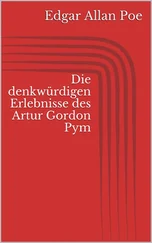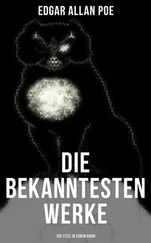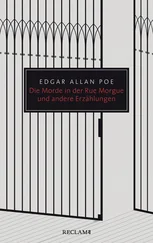Across the room, Cardinal Marsciano turned from the representative of Denmark and glanced at his watch.
7:50
Looking up, he saw Swiss investment banker Pierre Weggen enter the room. With him – and immediately causing a turn of heads and a very noticeable drop in the conversation level across the room – were Jiang Youmei, the Chinese ambassador to Italy, his foreign minister, Zhou Yi, and Yan Yeh, the president of the People's Bank of China. The People's Republic of China and the Vatican did not have official diplomatic relations, and had not since the Communist takeover of China in 1949, yet here were its two ranking diplomats to Italy and one of the new China's most influential business leaders striding into the Vatican Embassy in public view with Weggen.
Almost immediately Palestrina crossed to greet them, bowing formally then smiling broadly and taking the hand of each, and afterward motioning for drinks and chatting happily as if they were his old and dear friends. Chatting, Marsciano knew, in Chinese.
China's expanding relationship with the West, coupled with its rapid emergence as a towering economic power, had had little or no effect on the all-but-nonexistent relations between Rome and Beijing. And while there remained no formal diplomatic communication between them, the Holy See, under Palestrina's careful posturing, was attempting to pry open the door. His immediate goal was to arrange a papal visit to the People's Republic.
It was an objective that had far-reaching implications because, if his overture was accepted, it would be a sign that Beijing was not simply opening its doors to the Church but was ready to embrace it. Which was something, Palestrina was certain, China had no intention of doing – today, tomorrow, or, in all likelihood, ever; making his objective exceedingly ambitious at best. Yet, the secretariat of state was no wallflower. And moreover, the Chinese were here, and publicly.
That they were here was due chiefly to Pierre Weggen, with whom they had worked for years and whom they trusted implicitly. Or, as implicitly as any Oriental trusted any Westerner. Seventy, tall, and genteel, Weggen was a pre-eminent international investment banker. World renowned and immensely respected, he functioned primarily as liaison between major multinational companies looking to create global working partnerships. At the same time, he continued to work as a private counselor to longstanding clients and friends; the people, companies, and organizations who, over the years, had helped build his reputation.
It was a client base that had always been and still remained confidential. The Vatican was among them. And Nicola Marsciano, the man responsible for Vatican investments, had spent the entire afternoon sequestered in a private apartment on Via Pinciana with Weggen and a battery of lawyers and accountants he'd brought with him from Geneva.
For more than a year Marsciano and Weggen had been belt-tightening the Holy See's portfolio, narrowing the range of investments to focus on energy, transportation, steel, shipping, heavy equipment; corporations, companies, and spin-off companies that specialized in major international infrastructure development – the building and rebuilding of roads, waterways, power plants, and the like in emerging nations.
The Vatican's investment strategy was the kingpin in Palestrina's mandate for the future of the Holy See, and was why the Chinese had been invited here to mingle and why they had come, to show that China was a modern country that shared the same economic concerns for emerging nations as did her European friends. The invitation had been out of goodwill, giving the Chinese a way to quietly intermingle and to discreetly establish a presence – and at the same time to be stroked by Palestrina.
Yet emerging nations in the plural was not on Palestrina's agenda. One nation, in the singular, was: China herself. And outside of a very few – Pierre Weggen and the pope's remaining men of trust – no one, not even the Holy Father, had any idea of the secretariat's real objective, which was to see the Vatican become a wholly anonymous yet major partner and influencer in the future of the People's Republic, economic and otherwise.
The initial step was tonight, with the hand holding of the Chinese. The second would take place tomorrow, when Marsciano would present the newly revised 'Emerging Nation Investment Strategies' to a commission of four cardinals charged with him in overseeing the Church's investments for ratification.
The session would be tumultuous because the cardinals were conservative and not open to change. It would be Marsciano's job to convince them, to show in exhaustive detail the regions their extensive research had targeted – Latin America, Eastern Europe, and Russia. China would be there, of course, but hidden within the sweeping term Asia – Japan, Singapore, Thailand, Philippines, China, South Korea, Taiwan, India, etc.
The trouble was it was a deliberate fabrication. Unethical and immoral. A calculated lie designed to give Palestrina exactly what he wanted without ever divulging it.
Moreover, it was only the beginning of Palestrina's plan. China, the secretariat understood all too well, was, for all its openness, still at heart a closed society, tightly controlled by an authoritarian Communist guard. Yet authoritarian or not, China was modernizing quickly; and a modern China with one-quarter of the world's population and its accompanying economic clout would, with little doubt and in little time, become the most formidable power on earth. With that truth came the obvious – control China and you control the world. And that was the heart and soul of Palestrina's plan – the domination of China in the next century, reestablishing the Catholic Church and its influence in every city, town, and village. And, within a hundred years, to create a new Holy Roman Empire. With the people of China answering no longer to Beijing but to Rome, the Holy See would become the greatest superpower on earth.
It was madness, of course – and to Marsciano an all-too-clear illustration of Palestrina's progressively deranged thinking – but there was nothing any of them could do about it. The Holy Father was enamored with Palestrina and had no knowledge of his plan whatsoever. Furthermore, slowed by precarious health and an exhausting daily schedule, and trusting Palestrina as he would trust himself, the pope had all but handed the global directives of the Holy See over to his secretariat of state. So to go to the Holy Father would be doing nothing more than going to Palestrina himself because, if called, the secretariat would deny everything, and his accuser would be summarily shipped off to a parish unknown and never heard from again.
And therein was the true horror of it. Because, with the exception of Pierre Weggen, who believed in Palestrina fully, the others – Marsciano, Cardinal Matadi, Monsignor Capizzi, the remaining three most influential men in the Catholic Church – were all in one way or another terrified of Palestrina. Of his physical size, of his ambition, of his exceptional ability to find a man's weakness and then exploit it to further his own ends, and – perhaps most frightening of all – the tremendous force of his character once you became the focus of his attention.
They were terrified, too, of the madmen who worked for him: Jacov Farel, who was, on the one hand, the very public and outspoken chief of the Vatican police, and on the other, the secretive and ruthless henchman to Palestrina's ambition; and the terrorist Thomas Kind, who had assassinated Palestrina's archfoe, Cardinal Parma, in their presence and in the presence of the Holy Father, and in the presence of Palestrina, who had ordered it done, and then calmly stood beside him as he was shot down.
Читать дальше
